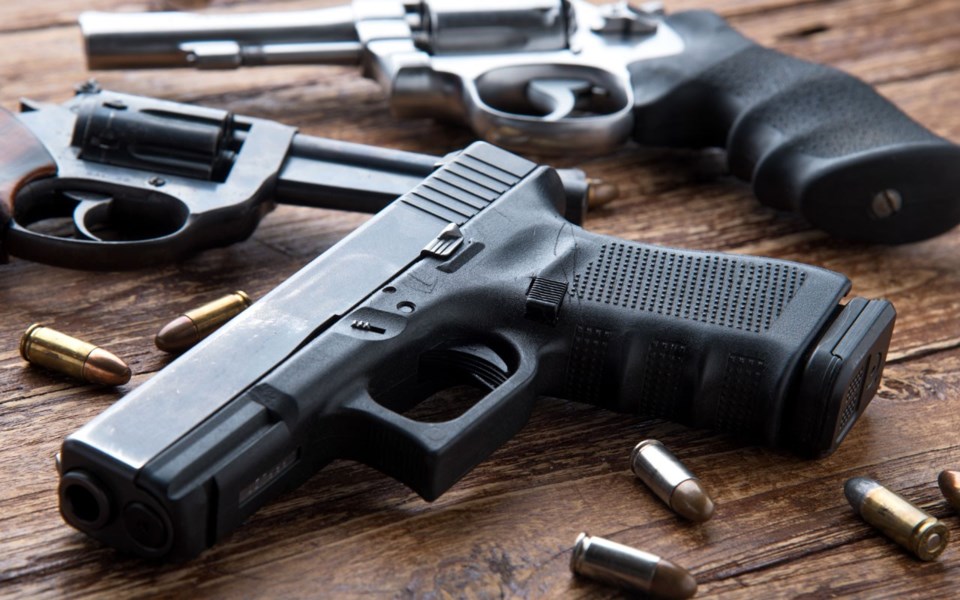Far too many times this summer, I've sent late-night messages to my Toronto friends, essentially to the effect of, "... that wasn't your neighbourhood, was it?"
Thankfully, horrors like the van attack and the spate of shootings weren't in their neck of the woods, though on Sunday, July 22, one friend was talking to his other buddy who lives startlingly close to the site of gunfire, which rang out in the Greektown neighbourhood of Toronto, leaving two victims and the shooter dead. Thirteen others were injured.
It's easy enough to worry for those who live in a place that seems to be taking more than its fair share of violence in recent months.
Then you start to think about dangerous occupations—but not necessarily the stereotypical ones like military, police or firefighters. With all the school violence, especially south of the border, it's hard not to fret about if it might happened at my father's school. My fiancée works for a finance company and it's not hard to imagine how some people might react when their personal situations take a turn for the worse. And after the leader of the free world has fired his own salvos at media in general over the past several years, the only surprising element of the Capital Gazette murders in Annapolis, Md. was that it didn't happen sooner. (This may be a vacant invocation, but here's hoping it never happens here, or anywhere, again.)
Though it would be easy to think of every possible worst-case scenario and get trapped down that rabbithole, I actually don't say all this to be a fearmonger—not in the slightest. There's long been far more danger on the roadways than otherwise being out in public.
No, it's because for all the risk, more often than not, things turn out OK. It's cold comfort for those whose lives have been forever changed for the worse, and I know I'd be an inconsolable wreck if any of the horrors happened to me, or someone I love. I can't imagine being in the shoes of someone affected by these events right now, especially the families that lost young men and women decades before their time.
We can't be complacent. At the forefront of the fight against this senseless violence needs to be determining how these killers keep getting access to dangerous weapons, and finding effective solutions to keep that from happening.
We can't dismiss the role—and I still can't believe this is something we have to write—U.S. President Donald Trump is playing in encouraging his supporters to turn on their fellow humans. Some of the targeted are citizens that either oppose him, are writing truth about him, or are victims seeking reasonable changes to laws in order to keep incidents like those they survived from happening again. Some are vulnerable folks who are fleeing everyday situations even more horrific than the headline-grabbers in this part of the world.
And even in these times of tragedy, we need to be cognizant of how we speak of any perpetrator, providing all vital information while not glorifying the act or encouraging copycats. Equally as important, we need to take care to avoid implying that there's any "bigger picture" of an event unless there's damning evidence that there is one. Within hours of the July 22 Toronto shooting at Danforth and Logan Avenues, irresponsible blowhards were already openly braying about whether it was a refugee or a terrorist or any other racially charged tweetable dog whistle. And while mentioning an attacker's mental illness is certainly in the public interest, leaning into it too heavily, as we have a tendency to do, hinders understanding of those suffering from mental illness and reinforces stigma around getting help. Just because one person did something horrific doesn't mean someone else with one or two shared characteristics is going to do the same thing.
Such prejudice has, unfortunately, always been part of Canada, but it came to prominence in recent weeks as blatant discrimination has been taped and shared publicly. In London, Ont., a shopper prevented a man from leaving a grocery store after deeming him an "illegal alien" based on nothing more than his appearance. Our part of the country isn't immune either, as a Surrey family originally from the Bahamas was questioned recently about using the pool in their own townhouse complex.
While no one should be expected to have to cope with violence and tragedy, there's a privilege with the common refrain of "I never thought it would happen here," as though such events should be restricted to others' domains. While we work on understanding and preventing large-scale violence, let's not forget the targeted, individualized, smaller-scale experiences many endure every day—including the offences we commit ourselves.




